
Eric Clapton’s “Cocaine” rattles out of speakers in cabins and messes throughout HMCS Yellowknife. It’s 0700 hours. April 20, 2019.
“Don’t forget this fact, you can’t get it back …”
In the galley, Yellowknife’s cooks started preparing breakfast at 0500 hours. Food is a morale booster on a ship, so it’s uniformly good and uniformly plentiful — eggs the way you want them, bacon or sausages, toast. Before too long, throughout the 55.3-metre Canadian maritime coastal defence vessel, there’ll be the clunk of heavy sea boots on metal gangways and a crowd will be gathering at the counter in the flat (as the navy calls corridors) outside the galley.
“She don’t lie, she don’t lie, she don’t lie, cocaine …”
The music fades away, and two decks up on Yellowknife’s bridge, navy Lt. Anna Childerhose, the ship’s 24-year-old navigator and the officer of the watch, announces the ship’s location and the weather. She caps it off, as she does each morning, with an excruciating joke. (Example: “Did you hear about the shy pebble? It wanted to be a little boulder.”) Then, in a return to naval tradition, the shrill sound of a boatswain’s pipe rings out followed by the words, “Hands to breakfast.”
“COCAINE” ISN’T EXACTLY the song you’d expect to jolt you awake on a naval vessel. But they auction off the choice of wake-up song on Yellowknife as a charity fundraiser, and Clapton’s raucous ditty won this time. That aside, it is an excellent one-word answer to the question of what has drawn Yellowknife more than 3,000 nautical miles south from its home port of Esquimalt, B.C., to the warm waters off Guatemala and around the Galapagos: cocaine. That and a host of other drugs
この記事は Canadian Geographic の March/April 2020 版に掲載されています。
7 日間の Magzter GOLD 無料トライアルを開始して、何千もの厳選されたプレミアム ストーリー、9,000 以上の雑誌や新聞にアクセスしてください。
すでに購読者です ? サインイン
この記事は Canadian Geographic の March/April 2020 版に掲載されています。
7 日間の Magzter GOLD 無料トライアルを開始して、何千もの厳選されたプレミアム ストーリー、9,000 以上の雑誌や新聞にアクセスしてください。
すでに購読者です? サインイン
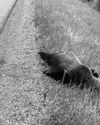
ANIMAL XING
THIS PAST SUMMER AN AMBITIOUS WILDLIFE UNDER/OVERPASS SYSTEM BROKE GROUND IN B.C. ON A DEADLY STRETCH OF HIGHWAY JUST WEST OF THE ALBERTA BORDER. HERE’S HOW IT HAPPENED.
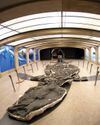
Unearthing a giant
Almost 30 years ago, paleontologist Elizabeth “Betsy” Nicholls made a discovery of colossal proportions
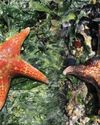
WE DID THIS
AS THE IMPACTS OF GLOBAL WARMING BECOME INCREASINGLY EVIDENT, THE CONNECTIONS TO BIODIVERSITY LOSS ARE HARD TO IGNORE. CAN THIS FALL’S TWO KEY INTERNATIONAL CONFERENCES POINT US TO A NATURE-POSITIVE FUTURE?
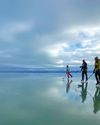
The COOLEST COUNTRY
“The coolest country” celebrates the wonders of winter with an all-Canadian theme. The 20-page travel planner includes a bucket list from travel writer Robin Esrock, steamy spa ideas, ice fishing destinations, festival fun, northern itineraries and more!
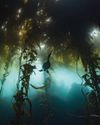
KEEPER of the SEA
FROM BEING LABELLED DEVIL’S APRON BY FRUSTRATED FISHERMEN TO BEING LAUDED AS A SUSTAINABLE FOOD SOLUTION: HOW KELP’S POTENTIAL IS BEING REALIZED, JUST AS SCIENTISTS LEARN IT’S DECLINING

WILD THINGS
WILD CANADIAN GEOGRAPHIC PRESENTS THE WINNERS OF ITS ANNUAL CANADIAN WILDLIFE PHOTOGRAPHY OF THE YEAR COMPETITION

AN EMPTY LANDSCAPE
AFTER MORE THAN A MILLION YEARS ON EARTH, CARIBOU ARE UNDER THREAT OF GLOBAL EXTINCTION. THE PRECIPITOUS DECLINE OF THE ONCE MIGHTY HERDS IS A TRAGEDY THAT IS HARD TO WATCH — AND EVEN HARDER TO REVERSE.

NORTHERN EXPOSURE
BON INTO A CARIBOU-HUNTING CREE FAMILY IN NORTHERN MANITOBA, ACCLAIMED PLAYWRIGHT AND NOVELIST. TOMSON HIGHWAYS PAYS TRIBUTE TO THE MAGICAL WORLD OF HIS CHILDHOOD IN PERMANENT ASTONISHMENT

INTO THE ARCTIC
CANADIAN PAINTER AND FILMMAKER CORY TRÉPANIER EXPLORES THE SUBLIME AND RAPIDLY CHANGING CANADIAN ARCTIC
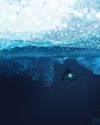
Under the ice
Until the last decade, we knew little about what lay beneath the Arctic ice. Now scientists and explorers are shedding light on this vanishing world.